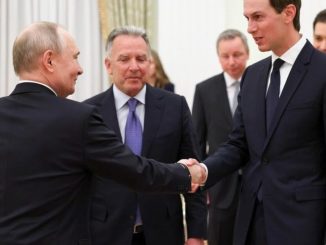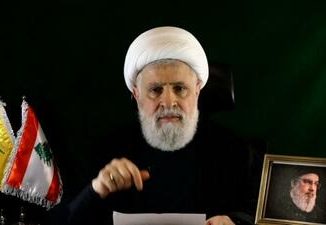
Russian overnight attacks continued Saturday with targets hit in Odesa and Sumy
| Published July 20, 2025
The Ukrainian president said that “the momentum of the negotiations must be stepped up.” Earlier, Russia launched 300 drones and 30 missiles overnight, killing one.
As missile strikes rain down on Ukrainian cities and the frontlines remain entrenched, President Volodymyr Zelenskyy has extended a bold new offer to Moscow: resume high-level peace negotiations as early as next week. In a statement that signals both urgency and resilience, Zelenskyy confirmed that Ukraine has formally proposed a fresh round of talks—despite escalating Russian assaults and stalled diplomacy in recent months. With international pressure mounting and the humanitarian toll deepening, Kyiv’s renewed outreach aims to revive hopes for a ceasefire and test whether the Kremlin is ready to talk peace amid war.
-
New Diplomatic Push
Ukrainian President Volodymyr Zelenskyy announced over the weekend that Ukraine has sent a proposal to Russia to hold a fresh round of peace talks next week, spearheaded by newly appointed NSDC Secretary Rustem Umerov, who already led negotiations in Istanbul. -
Leadership-Level Meeting Sought
Zelenskyy underscored that talks should occur at the highest leadership level—even suggesting a face-to-face with Russian President Putin—to secure a “lasting peace”.
🕊️ Goals of the Talks
-
Ceasefire
Zelenskyy stressed that accelerating negotiations and achieving a ceasefire are imperative: “everything should be done to achieve a ceasefire”. -
Momentum
Spotting a diplomatic slowdown since June, he said the “momentum of the negotiations must be stepped up”. -
Prisoner Exchanges & Humanitarian Issues
The Istanbul talks earlier this year resulted in the exchange of POWs and soldiers’ remains—but no ceasefire or roadmap for peace.
💣 Context: Hostilities Grow
-
Escalating Russian Offensive
While Ukraine extends its diplomatic olive branch, Russia has intensified strikes—reportedly launching more than 300 drones and some 30 missiles during one night—killing civilians, damaging infrastructure, and attacking cities including Odesa, Sumy, and Dnipropetrovsk. -
International Pressure
The EU just unveiled its 18th sanctions package targeting Russian banks and energy sectors. Meanwhile, U.S. President Trump has placed a 50‑day deadline on Moscow to secure a ceasefire—or face aggressive tariffs and secondary sanctions.
🔍 Implications: What Zelenskyy’s Peace Overture Means
Zelenskyy’s renewed push for dialogue carries wide-reaching implications—not only for the battlefield, but for regional security, international diplomacy, and the political futures of both Ukraine and Russia.
-
A Strategic Risk for Kyiv
Proposing talks during a surge in Russian attacks may appear conciliatory, but it positions Ukraine as the side pursuing peace in good faith. This enhances Kyiv’s diplomatic image, particularly with Western backers who are increasingly concerned about war fatigue, aid costs, and the humanitarian toll. -
Pressure on the Kremlin
By initiating talks, Ukraine challenges Moscow to either engage or be seen globally as the obstacle to peace. If Russia rejects the offer or sets impossible preconditions, it risks further diplomatic isolation and stronger international sanctions—especially as the U.S. and EU increase economic pressure. -
A Crucial Test for U.S. and EU Policy
The offer puts the spotlight back on Washington and Brussels. Can they back diplomatic progress with real leverage? With the U.S. setting deadlines and the EU passing its 18th sanctions package, Zelenskyy’s move tests whether the West’s “support for peace” will extend beyond words to enforcement. -
Shaping Public Perception and Morale
Domestically, this gesture may help bolster Ukrainian unity and resolve, projecting leadership that seeks peace without surrender. For Russian citizens and soldiers, it exposes a contrast between Kyiv’s diplomacy and the Kremlin’s continued bombardment. -
Ceasefire or Stalemate?
If accepted, the talks could pave the way for a partial ceasefire, humanitarian corridors, or another round of prisoner exchanges. But if the offer is ignored or manipulated by Russia for delay tactics, it risks becoming yet another failed chapter in the long, elusive search for peace.
 Overall Takeaway: A Fragile Opening in a Brutal War
Overall Takeaway: A Fragile Opening in a Brutal War
President Zelenskyy’s renewed offer of peace talks arrives at a precarious moment—when the war’s intensity is rising, and diplomatic momentum has nearly stalled. It is both a signal of Ukraine’s enduring hope for a negotiated end and a calculated move to shift global perception and pressure squarely onto the Kremlin. Whether Russia responds with dialogue or defiance will shape not only the next phase of the war but the future of Eastern Europe’s security landscape.
In the fog of war, peace often begins not with breakthroughs, but with bold invitations. This may be one of them. But as missiles still fall and frontlines harden, the world waits to see whether diplomacy can do what force has not: stop the bloodshed.





Be the first to comment